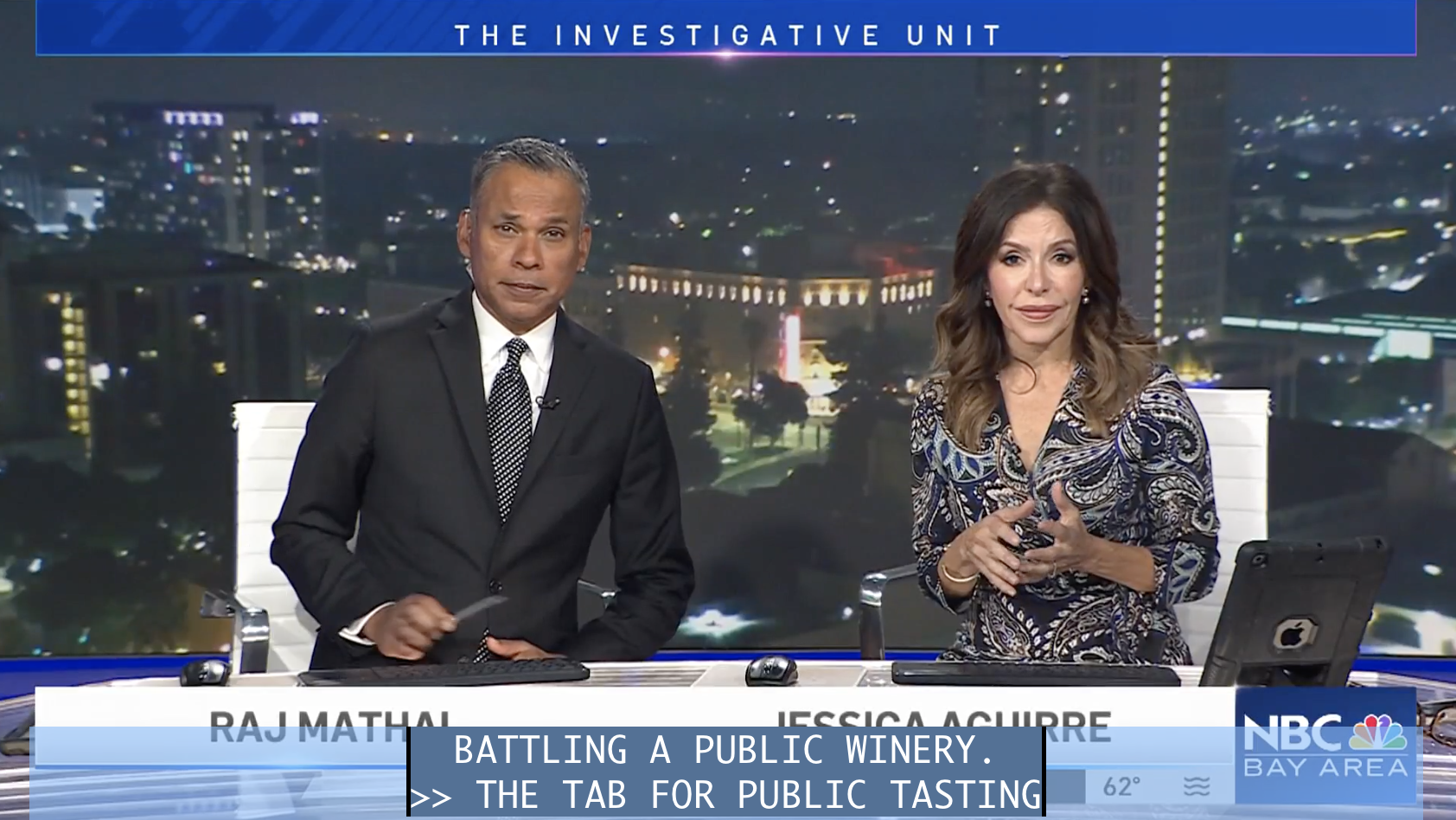By Jaxon Van Derbeken | Published September 19 | NBC Bay Area |
Lindsay Hoopes says she strives to be a good steward of the land at her Oasis by Hoopes winery in Napa – a serene backdrop where visitors come to sip wine while surrounded by an animal sanctuary, organic garden and of course, a vineyard.
“We called it The Oasis because it’s in a bucolic setting,” said Hoopes, a Wine Country native and former San Francisco prosecutor. “I actually pulled out two acres of vines here to reintroduce biodiversity and animals into our regenerative farming practices.”
But Hoopes now finds herself in an epic legal fight with Napa County over the winery’s future. It began when the county issued notices of potential violations and eventually sued last year to shut down the winery. The county alleges Hoopes’s winery is ignoring county restrictions against tastings, giving her an unfair advantage over other small wineries that abide by restrictions.
“I don’t even get parking tickets. So for me, being accused of violating a law is probably my worst nightmare,” Hoopes said in a recent interview. She says when she bought the winery back in 2017, she understood the winery had been offering tastings for decades under a small winery permit the county issued in 1984.
The county disputes that claim. Its lawyer says in a statement: “Hoopes is not permitted to provide tastings of any kind because it operates pursuant to a small winery exemption.”
The county also has alleged the animal sanctuary Hoopes added, along with airstream trailers, strings of lights and chicken coops, amounts to a public nuisance in a designated agricultural preserve. One lawyer representing the county in court told a judge the regulations at issue are intended to keep Napa Valley from becoming “Disneyland.”
Hoopes says she considers that notion absurd in her case – since she averages about eight visitors a day.
“On this road, we’re surrounded by vineyards,” she said. “There’s no residents, there’s no children running around.”
Two other local wineries recently joined the fight, arguing that their vintage small winery permits allow for tastings too. Last year, the courts temporarily sided with Hoopes until the case goes to trial, allowing her to remain open during the code dispute.
But in July, the battle shifted to her late mother’s property, when several county code enforcement officials descended on the vacant vineyard home just as Hoopes was in the midst of selling it. Hoopes said she put the house on the market to help cover her mounting legal bills. She says the potential violation described in the warrant to investigate dates back 15 years.
“It’s devastating. I think it was meant to intimidate me,” she said of the search, which occurred at a time when she had told county officials she would be out of the country.
The county would not make someone available for comment but said in a statement that the warrant was issued in accordance with a court-authorized follow-up on a 3-year-old, still unresolved permit violation.
As for the battle over her own winery’s future, county officials acknowledge spending more than half a million dollars in legal fees as of the end of July. Those costs are likely to mount if the case goes to its scheduled trial date in late October, right after the end of the grape harvest.


